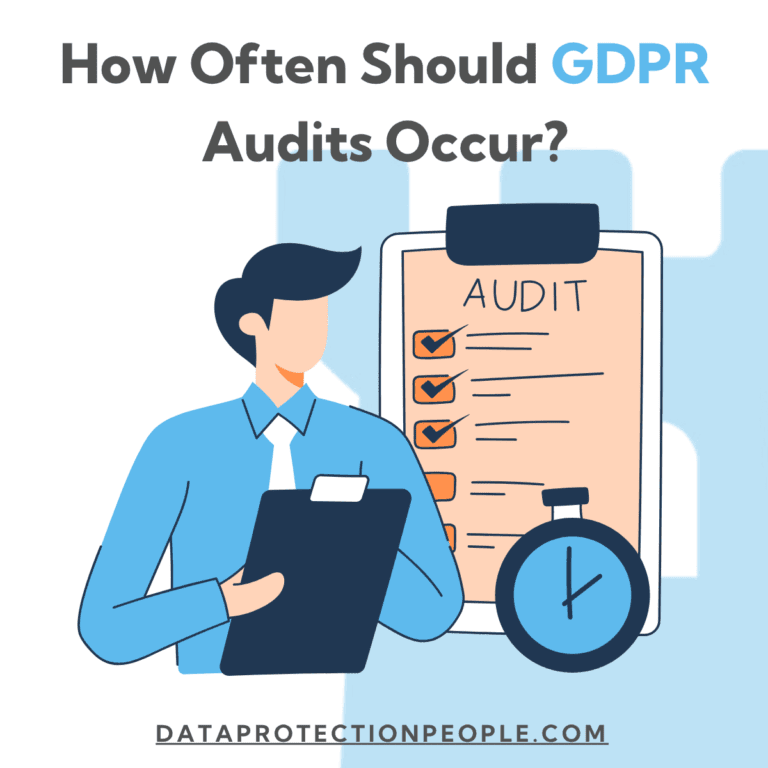How Often Should GDPR Audits Occur?
While a GDPR audit isn’t a legal obligation, you should complete one annually out of good practice.

You should complete a GDPR audit every year, but for some businesses, this may be more regular. Conducting regular audits will help prove your compliance, which is crucial should you be subject to an inspection by supervisory authorities.
In this blog, we outline four scenarios when you should complete a GDPR audit outside of your day-to-day compliance.
Are GDPR Audits Mandatory?
No – carrying out a data protection audit is not a legal obligation under the GDPR. The closest mention of requiring an audit is shown in Article 32 (1) (d), whereby both data controllers and processors must regularly test, assess and evaluate their security measures depending on the risk of processing.
A GDPR audit is best practice. Regular reviews will help you demonstrate your accountability and address issues before they get worse. With better transparency, you will minimise the risk of a data breach and the fines that come along with it.
When Should You Do a GDPR Audit?
1. At the Start of the Year
Most businesses want to start the year off on the right foot. A GDPR audit offers the reality check you didn’t know you needed. It separates businesses that treat GDPR compliance as a tick-box exercise from those who apply it daily in their operations.
You may have everything on paper, such as the required documentation and technical controls, but if you don’t consistently implement these measures, how can you guarantee the safety of personal data?
Before you develop your business plans for the year, take a step back and assess whether your data protection requirements are being met.
2. When You’re Involved in High-Risk Processing
You are expected to complete a data protection impact assessment (DPIA) before a new processing activity begins if it is likely to result in a high risk to the rights and freedoms of an individual (GDPR, Article 35)
A DPIA is a type of risk assessment conducted based on a data mapping exercise. This process involves mapping out all the data you will collect, store and use when processing, which can help determine whether high-risk data is involved.
Data mapping and DPIAs cover key steps of a GDPR audit, such as the necessary mapping and risk assessment processes. Carrying out an audit in tandem can give you peace of mind and provide detailed insight into whether your compliance as a whole can sustain future processing activities.
3. During a Merger or Acquisition (M&A)
A 2019 study of 500+ M&A practitioners revealed that 55% of M&A transactions didn’t progress due to concerns around a company’s GDPR compliance.
If your business is planning a merger or acquisition (M&A), a data protection audit will demonstrate your compliance, which is a vital part of the due diligence process.
An audit will also give the buyer a clearer picture of the risks and liabilities involved in your processing activities. As such, it is your best chance of building confidence with potential buyers, ultimately leading to a positive outcome.
4. After Regulatory Changes
Over the years, the UK GDPR has been subject to various reforms, some of which failed, such as the Data Protection and Digital Information (DPDI) Bill, and others which have moved within their final stages of approval (the DUA Bill).
Other major compliance developments have included the EU AI Act and PCI DSS 4.0, which also extend the legal framework set out in the UK GDPR.
With so much change, a GDPR audit will help you assess whether your existing technical and organisational measures meet the requirements of legislation that is coming into effect or being changed.
Speak to Our Team for Expert GDPR Support
Whether you require an annual GDPR audit or ongoing support, our data protection consultants are here to help. Get in touch today to get started.
